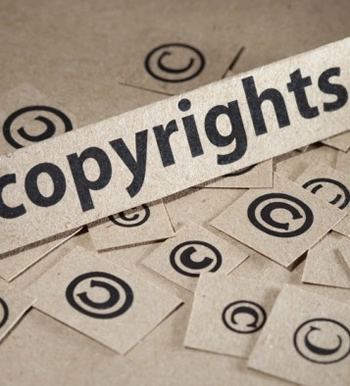The U.S. Copyright Office has performed its triennial review of exceptions to the DMCA (Digital Millennium Copyright Act). Officials have most notably determined jailbreaking smartphones (but not tablets) remains legal, unlocking phones is legal – but only with your carrier's blessings – and copying DVDs is still not covered under fair use, thanks mostly to that tricksy bit of weak encryption still employed by most distributors.
As mentioned above, when it comes to jailbreaking, smartphones are still perfectly legal to tinker with. Where this anomalous exception falls short though, is pretty much anything else: tablets, e-readers and game consoles. It's worth noting in 2010, officials also deemed jailbreaking to be legal on smartphones.
Regulators reckon that the DRM used to protect e-books and video games trumps full "software interoperability" (read: freedom to use it how you'd like) because the production of such titles is labor and resource intensive. This is in contrast to apps, intellectual property which the gaming industry believes isn't as valuable (i.e. less investment and effort to create). In part because apps are supposedly less valuable, regulators conceded jailbreaking is okay on phones but not game consoles. Tablets and e-readers also remain off-limits, due in part to the protection of e-books.
Of course, allowing owners to jailbreak their iPhone (i.e. smartphone) but not their iPad (i.e. tablet) sounds somewhat nonsensical, but the omission of a tablet exception seems driven by the failure to properly define what a "tablet" is. It looks like regulators want to wait this one out, admitting they'd rather not make a blanket decision regarding such a rapidly evolving device.
The idea of software on a user's phone being "licensed" to them comes up as a reason to prohibit unlocking. Software is "licensed" to its users with restrictions, limitations of use and so on. That's fascinating logic though, since officials decided it doesn't work this way with jailbreaking. Go figure.
Incidentally, DIY phone unlockers are also likely to be disappointed. Although unlocking "legacy" phones will remain legal in practice, unlocking new phones purchased after October 28 this year will require explicit permission from the carrier. Fortunately, AT&T and others provide legitimate methods to evade carrier lock-in, but users will find themselves at the mercy of their carrier's fine print (e.g. like being out of contract).
For those who don't know – unlike jailbreaking which essentially "unlocks" operating system restrictions – actually unlocking a phone frees it purely from carrier restrictions (i.e. being artificially bound to a single carrier's network).
Interestingly, while regulators found the wholesale duplication of DVDs to be a disagreeable act, copyright officials did write that users may still legally use "short portions of the motion pictures for the purpose of criticism or comment". However, without an official declaration of precisely how long a "short portion" should be, there's a bumper crop of ambiguity here for fair use supporters and detractors alike.
Readers may check out the entire synopsis of the review here which touches on subjects in far more detail, citing arguments responsible for their decisions. The next review will likely be in 2015.
